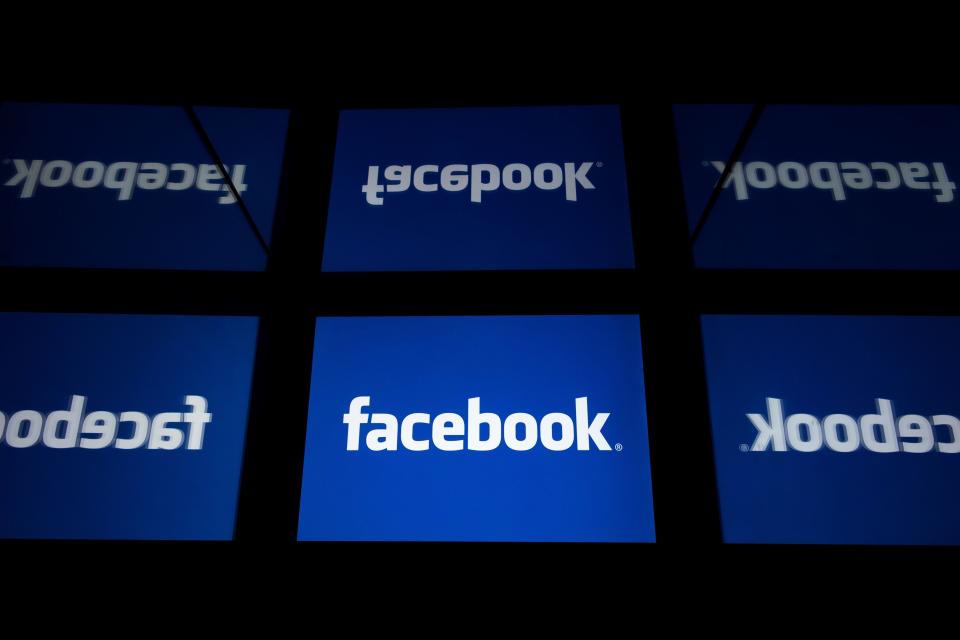Facebook refusal to curb fake Nancy Pelosi drunk video highlights need for responsibility

If someone wanted to come up with a plan to get Americans to repeal the First Amendment, it might go something like this: Create a global platform for transmitting information. Give it owners more interested in expanding their empire than fostering a civil community. And give them special protection to publish falsehoods and slander with impunity.
Welcome to the brave new “news” world that the internet has built. Or, more accurately, that we have allowed leaders of internet platforms to build because we have not insisted that they assume the responsibility that goes along with their newfound power.
Facebook’s refusal to pull a maliciously doctored video of House Speaker Nancy Pelosi from its platform is just the latest example of how the digital technology that proponents thought would turbocharge democracy has instead come to threaten it.
Hey, why eliminate an inaccuracy that might get some people to click?
The late John Seigenthaler, a distinguished newspaper editor and advocate for press freedom and civil rights, first sounded the alarm 14 years ago on these pages. In an op-ed, the founder of USA TODAY’s editorial page described how he was viciously defamed on Wikipedia by an anonymous writer whose motivation, when he was subsequently outed, appeared to be nothing more than the desire to play an idle prank.

Read more commentary:
We might be better off if Facebook, Instagram and Twitter vanished: Sen. Josh Hawley
My teens don't use social media, but even they can't escape the pressure of perfectionism
Facebook's 'fake news' problem won't be solved by banning right-wing, anti-Semitic trolls
Most exasperating for Seigenthaler, and frightening for the rest of us, was how long it took even a powerful, well-connected man to get the slander taken down, and how much worse it got during his four-month battle to get the problem fixed and six months to find out who did it. He shared some of the documentation several years later with a class of Princeton University students I was teaching at the time.
Wikipedia ultimately changed some of its policies as a result of what the online encyclopedia describes on its own pages as the "Wikipedia Seigenthaler biography incident." But in his conversation with my Princeton students and in a 2011 interview with C-SPAN just three years before he died, Seigenthaler continued to worry that online publishers’ irresponsible behavior and lack of accountability would prompt a backlash by politicians and the public against freedom of speech.
Internet protections applied then, not now
It wasn’t supposed to be like this. When the internet first burst onto the scene as a widely accessible communications tool in the early 1990s, there were many who hailed it as a way to end-around the mostly older, mostly white, mostly male gatekeepers of the nation’s mainstream media.
Say what you will about those of us dinosaurs whose path to publication was the printing press: We took people’s rights to privacy and against getting slandered seriously. And let’s be honest: It wasn’t necessarily because we were great idealists devoted to The Truth. It was at least in part because we could get sued for putting out false information.
Not Facebook.
A provision of the 1996 Communications Decency Act known as Section 230 gives internet platforms a special status: Unlike most publishers, they cannot be held legally liable for anything posted to their sites, as long as they are posted by third parties. As digital media scholar Jonathan Zittrain has noted, this means you can sue the publisher if you were defamed in a letter to the editor in a newspaper, but not if the same letter were posted online.
The provision was designed to protect what was at the time a fledgling industry. It isn’t any longer.
Facebook should have zero tolerance for lies
Facebook spent nearly $13 million lobbying Congress last year, according to figures compiled by the nonpartisan Center for Responsive Politics. More than two-thirds of Americans are on the social platform, according to the Pew Research Center, and more Americans now get their news from social media than from newspapers.
Thanks to the laissez faire attitude of social media executives, those consumers are swimming in a sea of weaponized disinformation. The new medium’s potential for providing new perspectives and connections is being swamped by trolls, vandals and poison pens.
To borrow the Facebook parlance, if the leaders of today’s internet behemoths really “like" the democratic society that has allowed them to flourish, they might want to grow up and accept their responsibilities as publishers. That means zero tolerance for lies.
Everyone has a right to their opinion. But not everyone’s opinion — or racist rants, or unscientific theories or malevolently doctored videos — deserves to be given worldwide publication.
It’s understandable that Facebook and other internet providers don’t want to be regulated. Even John Seigenthaler, a victim of their carelessness, didn’t like the idea. But avoiding the heavy hand of government regulation means doing a better job of regulating yourself and what you publish.
As the Bible tells us, “The truth shall set you free.”
Kathy Kiely, a former political reporter for USA TODAY, is the Lee Hills Chair in Free Press Studies at the Missouri School of Journalism. Follow her on Twitter: @kathykiely
You can read diverse opinions from our Board of Contributors and other writers on the Opinion front page, on Twitter @usatodayopinion and in our daily Opinion newsletter. To respond to a column, submit a comment to letters@usatoday.com.
This article originally appeared on USA TODAY: Facebook refusal to curb fake Nancy Pelosi drunk video highlights need for responsibility

